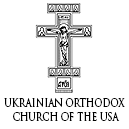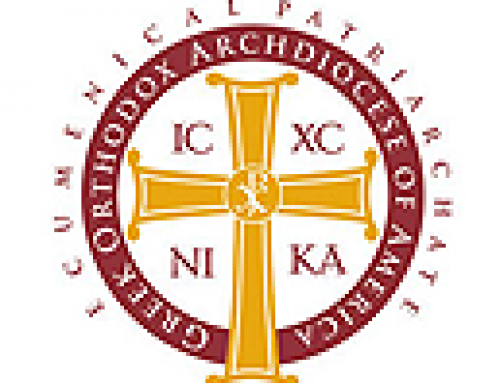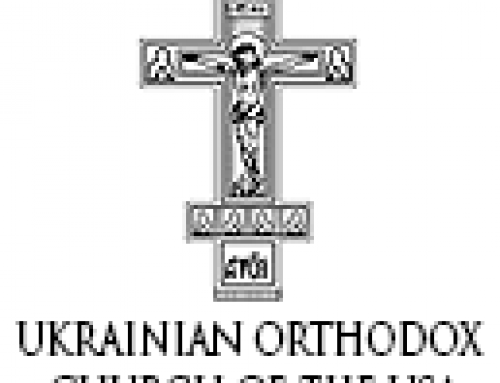This post was originally published on this site
In the Name of the Father, and of the Son, and of the Holy Spirit. Amen.
“You will indeed drink the cup that I drink, and with the baptism I am baptized with you will be baptized;” Christ admonishes His disciples. When in the Garden of Gethsemane, Jesus prays, “let this cup pass from me…” Let me avoid this suffering. His human will is fearful of the pain which He will endure and this is the cup that the disciples will share. All but one of the disciples, all but the beloved Saint John, met their end in the death of martyrdom.
Through this time of the Great Fast, we have been called upon to take up our cross and follow Christ. We have been called to be less self-centered; we have been called to be more attentive to our physical and spiritual habits. Now, however, we are being called, if we would be disciples of Christ, to lay down our lives.
As we have discussed before, many of the Christians in the early Church were martyred. It was a very dangerous thing to live the Christian life. When, in 312, the Emperor Constantine made Christianity the state religion, instead of persecuted minority, it became fashionable and easy to be a Christian in public. As a result, a new type of Christian arose: a nominal Christian. A person who voiced Christian values and teachings, but had no deep conviction or attachment to Christ.
In effect, Christianity became weaker when threat of death was removed because it was easier to be a Christian.
But this weakening also gave rise to a new form of spirituality: monasticism. People of deep faith, wanting to become more like Christ and wanting to live a more integrated life than the nominal Christian, shunned the world and started living separated from the world. These became the first monastics.
We commemorate one of our great monastics today: Saint Mary of Egypt. She lived in sixth century, in Alexandria. She was a prostitute for 17 years.
Once, when she heard of that a group of sailors was traveling to Jerusalem, to venerate the Holy Cross, she was intrigued and set sail with them. When she arrived at the church, an invisible force kept her from entering. She tried three times to enter, but was barred each time. She then threw herself on the mercy of the Theotokos and prayed before her icon. She promised to reform her life and live only for Christ. After entering and worshipping in the church, she fled into the desert, renouncing her previous life and living as an ascetic.
We only know of her life because she recounted it to Elder Zosima, another ascetic, who encountered her after she had lived in the desert for 47 years. Her life is recounted in the Canon of Saint Andrew during the Great Fast.
We often talk about monastic saints in the Orthodox faith, not because the monk is essentially better than the rest of us, not because their work is harder or their conviction greater, but because they set up for us a goal, a pinnacle towards which we should strive: 100% Christian, 100% of the time.
Should we flee from our lives like Saint Mary? Not necessarily. The responsibilities of our lives are given to us by God. But, should we flee from our former sinful ways like Saint Mary? Leaving them behind and starting a new life centered on the Holy things of God? Should we live more simply? Should our public lives match what we profess here in Church?
Absolutely.
This is the challenge of the Orthodox Faith, true Christianity, not nominal Christianity. Faith that informs all of our lives, not merely a Sunday morning visit. Faith that brings under control our wild emotions and sets up boundaries for our secular encounters. Faith that is the center of our lives, not an expendable hour or two, used to salve a guilty conscience.
Kindness to family, friends, and strangers. Regular and frequent church attendance. Attention to the present moment and to our immediate neighbors. Regular, financial offerings to the work of God and His Church. Continual prayer, spiritual reading, fasting according to tradition. These are the physical exercises which gain spiritual benefits. Purification, illumination, and theosis.
This is our faith. Christ calls us to give our lives. As Creator, they are already His by right. Who can say they made themselves? Even the “self-made” man was given the ability, the access and the opportunity by God’s providence. It is He that hath made us, and not we ourselves.
Will we turn a deaf ear to Christ’s call for an offering of ourselves, our souls and bodies to the one who has already given us everything we have and did not spare His own human life?
Let us commend ourselves, one another, and all our life unto Christ our God.
Amen!
Fr. Theophan Mackey
St. Job Parish, Los Alamos NM



